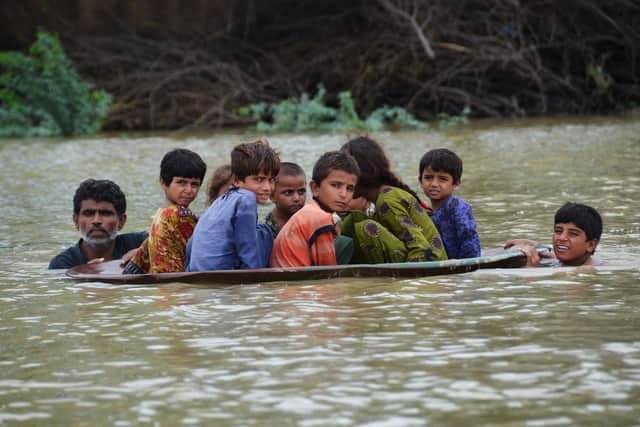Climate change: World took big step forward for nature in 2022, but is still failing to tackle fossil fuels – Dr Richard Dixon
The scientists of the Intergovernmental Panel on Climate Change produced a report on impacts around the world. From floods and storms to drought and ice-melt, their overall glum message was that predicted impacts were happening faster and to a stronger degree than expected.
This year saw big floods in Pakistan and southern Africa, and an intensifying drought in sub-Saharan countries affecting about 20 million people, as well as a prolonged heatwave across most of Europe that killed more than 10,000 people this summer. Here in Scotland, we had low reservoir and river levels, and hose-pipe bans during the hot, dry months of our summer.
Advertisement
Hide AdAdvertisement
Hide AdThe COP27 climate talks took place in Sharm el-Sheikh. At first, Rishi Sunak was too busy to go but was then embarrassed into it. The COP was a big success in getting agreement that there should be a fund to cover the irreplaceable losses that climate change is already bringing. But it was a failure in that it did no more than last year’s Glasgow talks to tackle fossil fuels.
In the summer, we learnt that Scotland’s climate target for 2020 had been met, mainly because of a big drop in transport emissions during the pandemic lockdowns. Our official advisors told us that meeting future targets would need much more effort, and the government had to admit that its plans for carbon capture were not going to deliver any time soon. Nonetheless a new fossil-fuelled power station was proposed for Peterhead. Fracking was back on in England. Then it wasn’t. Lots more oil and gas production was agreed, but our First Minister disagreed.
The UK Government maintained its enthusiasm for nuclear power, giving the go-ahead for very expensive power to come from new reactors at Sizewell on the Suffolk coast at some distant point in the future – if either too little cooling water (because of drought) or too much water (from sea-level rise and stronger storms) doesn’t scupper the project first.
Another product of this muddled thinking was a discussion between Rolls Royce and Jim Ratcliffe of Ineos about a potential nuclear reactor at Grangemouth. An untested nuclear design in the heart of the Central Belt, in SNP constituencies, surrounded by stuff that explodes and all for Jim Ratcliffe, a man that many love to hate. What could possibly go wrong?
The H100 project in Fife to heat people’s homes with hydrogen was revealed to be running about a year late and even the Scottish Government has gone cold on the idea. The Scottish Government banned further incinerators, Nicola Sturgeon proposed a £20 billion fund from oil revenues, and ScotRail are running a six-month trial doing away with peak fares – let’s hope it sticks.


At the end of the year, United Nations’ talks in Montreal came up with a global deal to protect and restore nature, including designating 30 per cent of the land and sea on the planet for nature by 2030, a commitment echoed by the Scottish Government. Now they just have to deliver it.
Dr Richard Dixon is an environmental campaigner and consultant
Comments
Want to join the conversation? Please or to comment on this article.